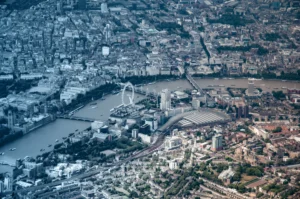Reeves emphasized the mandate for “national renewal” following the businesses’ and public’s desire for change. She highlighted the need for investment to boost economic growth, vowing to put “more pounds in people’s pockets” and restore economic stability after 14 years of Conservative governance.
National Insurance
- Employers’ Contributions: A 1.2 percentage point increase in employers’ national insurance contributions, rising to 15% from April 2025. This change, combined with a reduction in the secondary threshold for contributions, is expected to raise £25 billion annually.
- Political Impact: While essential for funding public services, this decision is politically risky as it may be perceived as a “tax on jobs.”
Income Tax
- Threshold Increases: Personal tax thresholds will be aligned with inflation starting in 2028-29, helping to avoid pushing taxpayers into higher bands prematurely.
- Analysis: This move allows Reeves to claim adherence to Labour’s manifesto promise of not increasing taxes on working people, albeit with a delayed effect.
Capital Gains and Inheritance Tax
- Increases: Capital gains tax rates will rise modestly, with the lower rate increasing from 10% to 18% and the higher rate from 20% to 24%. The inheritance tax threshold will be frozen until 2030.
- Political Ramifications: While expected, the changes are unlikely to generate significant backlash due to their modest nature.
Minimum Wage
- Wage Increase: The national living wage will rise by 6.7% to £12.21, benefiting full-time workers substantially.
- Political Strategy: Increasing wages is typically a popular move, but potential concerns about impacts on job creation persist.
Tobacco and Alcohol Taxes
- New Levies: A levy on vapes will be introduced, and taxes on tobacco will rise by 2% above inflation, with a 10% hike on hand-rolling tobacco. Alcohol taxes will also increase in line with inflation.
- Public Sentiment: While these “sin taxes” align with health objectives, the cut in draught duty offers a nod to publicans and could mitigate some criticism.
Fuel Duty
- Freeze Extended: A freeze on fuel duty will continue for another year, maintaining a previous 5p cut.
- Political Considerations: This decision is politically astute, as it sidesteps backlash from voters sensitive to fuel price increases.
Private School Fees
- VAT Introduction: VAT will be applied to private school fees from January 2025.
- Public Support: This move is broadly popular and aligns with Labour’s educational policies.
Education and NHS Funding
- Investment in Schools: The Department for Education will receive £6.7 billion for capital investment, aiming to rebuild over 500 schools and increase teacher hiring.
- NHS Boost: A £22.6 billion increase in the NHS budget, part of a ten-year plan, addresses ongoing concerns about healthcare services.
- Political Importance: The education and health sectors were pivotal in Labour’s electoral success, and adequate funding is critical for ongoing support.
Housing and Transport
- Housing Investment: A commitment of £5 billion for housing aims to increase affordable housing supply and support local authorities.
- Transport Upgrades: Significant investments in rail upgrades and infrastructure improvements reflect Labour’s focus on regional development.
Public Investment and Borrowing
- New Rules on Debt: Aiming for a balanced current budget by 2027-28, Reeves outlined plans to manage public debt responsibly.
- Future Outlook: The government’s focus on investing in infrastructure while controlling borrowing could enhance economic stability.
Closing Remarks
Reeves framed the Budget as a crucial moment for the UK, challenging the Conservatives to outline their alternatives to her proposed tax increases. Her assertive stance positions Labour as the party committed to protecting public services and investing in the future.
Conclusion
Reeves’s Budget 2024 signals a transformative approach to fiscal policy, characterized by increased public investment and higher taxes on businesses and wealth. While the measures aim to address long-standing public service issues, they also present significant political challenges that the Labour government will need to navigate in the coming years.



